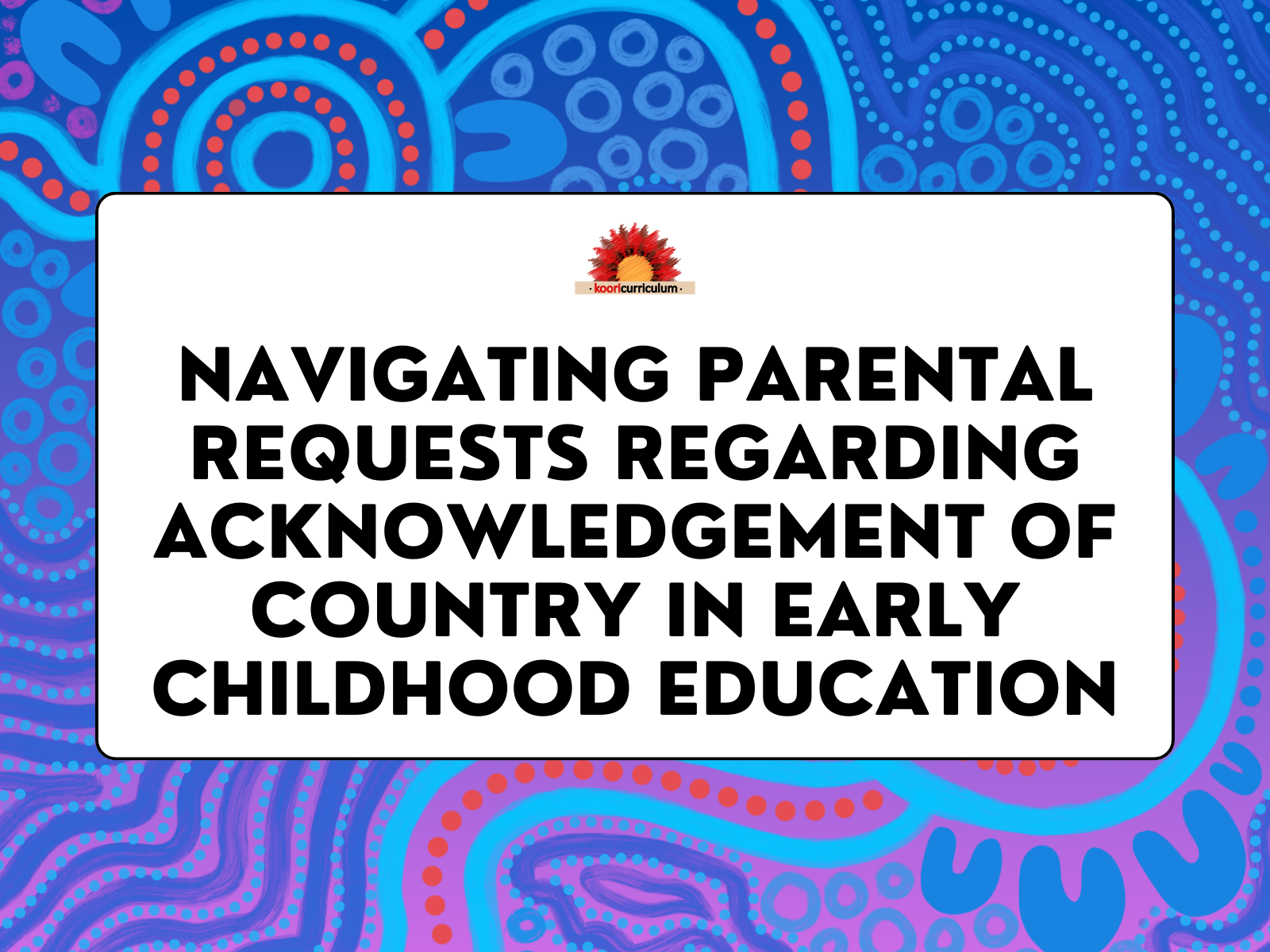As early childhood educators, we encounter diverse beliefs and values within the families we serve. One common query arises around the participation of children in the daily Acknowledgement of Country rituals, particularly when parents request that their child abstain.
Addressing this request requires sensitivity, understanding, and thoughtful consideration, as there is no one-size-fits-all answer. Instead, it is crucial to tailor our response based on the context, respecting both the child's needs and family beliefs.
Understanding Context and Inclusivity
The context in which a family makes such a request is essential. For instance, Jehovah's Witness families may have religious reasons for opting out of the Acknowledgement of Country, similar to their stance on birthday celebrations. The goal should be to work collaboratively with the family, ensuring the child remains included in other ways and not excluded from the community environment.
Inclusion, as outlined in our Code of Ethics, is challenging yet essential. It demands that we act in the best interests of all children, which can be difficult when our values conflict. This complexity underscores the hard work necessary for true inclusion.
Practical Approaches to Acknowledgement of Country
Consider the format of your Acknowledgement of Country. Instead of mandating uniform participation, allow flexibility. For example, use clapping sticks as a signal for the Acknowledgement of Country, inviting those who wish to participate to do so. Children who do not wish to partake should not feel pressured or isolated. This approach respects individual preferences while maintaining the ritual's integrity for those inclined to join.
Beyond the Acknowledgement
Remember, Acknowledgements of Country are not the sole method of showing respect. The practice should extend beyond words to the relationships we build with communities and how we embody respect for Elders and Traditional Owners through actions. Tangible acts of custodianship, like caring for the land, are equally significant.
Communication and Transparency
It is crucial to communicate your practices around Reconciliation, Inclusion, and Aboriginal programs clearly. Include this information in your enrollment process and make it visible on your website, allowing families to understand your values and decide if your service aligns with theirs.
Consider sharing insights through newsletters, parent nights, or on information boards, explaining why you engage in these practices and the significance of an Acknowledgement of Country.
Educating families can foster understanding and appreciation for the values you uphold.
By approaching each situation with empathy, openness, and a commitment to inclusivity, we can navigate parental requests thoughtfully, ensuring we honor our ethical obligations and support a harmonious community environment.
For more information check out our extensive free "Acknowledgement of Country Guide For Educators".




